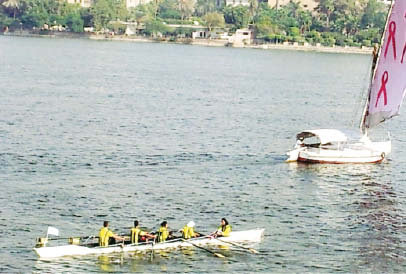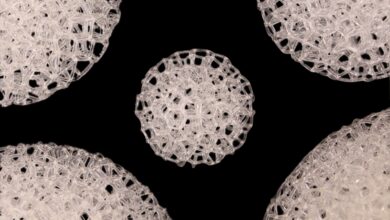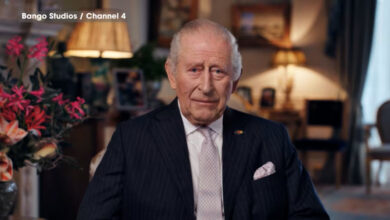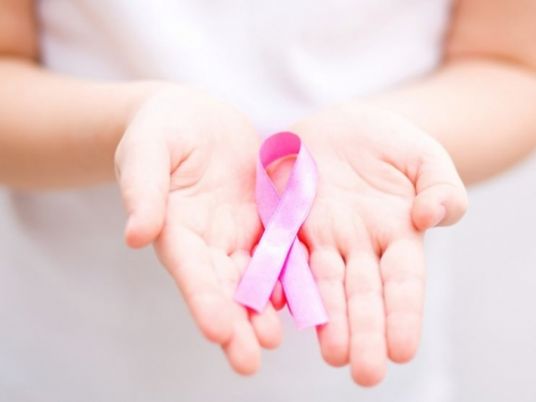
For the first time in Egypt and the Arab world last Saturday, 40 rowers competed in a race to increase awareness about breast cancer and support those with the disease.
As part of the annual International Breast Cancer Awareness Month this October, the Breast Cancer Foundation of Egypt, in collaboration with the Arab Contractors Rowing Club, organized the “Row for the Cure,” a half-hour race to draw attention to the disease.
Rowers set off at 1:30 pm on their boats, which were decorated with pink ribbon sails as a symbol for breast cancer awareness. The row was followed by a reception and speeches by event organizers, including a talk show on breast health.
According to World Health Organization statistics from its 2008 GLOBOCAN project, breast cancer is the most frequently diagnosed cancer among women and the most frequent cause of cancer deaths for women in developed and developing regions. It accounts for 23 percent of total cancer cases and 14 percent of cancer deaths worldwide.
The Breast Cancer Foundation of Egypt reports that the percentage of breast cancer cases among women comprises 37.5 percent of all cancer cases in the country.
Dr. Mohamed Shaalan, professor of surgical oncology and chairman of the foundation, said they were hoping to change the way people looked at the disease.
Many breast cancer survivors and women who continue to suffer from the disease attended last week’s event with their families. Some public figures, including singer Samo Zein, came to support the patients and help raise awareness.
“When a doctor tells a woman that she has breast cancer, she feels it’s the end of the world, and this is the problem here in Egypt,” Samo Zein said.
Emeline Lavender, an international Zumba instructor, also spoke, focusing on the importance of dance, aerobic exercise and sport in reducing the chances of contracting the disease. Zumba is an international fitness program inspired by Latin dance moves and is now in many international programs to fight breast cancer.
“In addition to getting rid of stress and pressures and maintaining happiness, practicing sports for two and a half hours a week can reduce the possibility of getting cancer by more than 13 percent,” Lavender explained.
Bassant Maroof, one of the race participants, said that in her four years of rowing, this was the first time she felt a sense of pride in her sport. When she heard about the race, she didn’t hesitate to participate.
“I participated in the marathon that was held around the Pyramids in 2009, but I wished I could do something more. I decided to dedicate my time to raising funds and making people more aware. It’s the least I can do,” Maroof said.
Breast cancer survivor Manal Omar attended the event to share her experience with the other patients and give hope. She said she went to the Breast Cancer Foundation of Egypt to get examined after hearing about the organization and the test on TV.
Doctors told her she had breast cancer that had developed into an advanced stage, and advised her to go through surgery. After surgery, she started her long battle with the disease through chemotherapy and radiation.
“A lot of people advised me to leave work and stay at home, but I insisted on going to work daily and taking care of my little children normally,” she said. “Cancer itself isn’t painful. The depression and frustration it creates is the real pain. Try to make yourself happy and forget your pains — this is the magical healing key.”
The Breast Cancer Foundation was established in 2004, after Shaalan noticed that most breast cancer patients came in at very late stages, when the chances of survival become very low and surgical mastectomy becomes the only solution. He established the foundation to raise awareness about the disease and encourage women of all ages and social and economic backgrounds to get regular screenings.
The foundation hopes to achieve its goals by printing brochures, providing medical examinations for free and offering patient support groups, Shaalan says.
“We reach women’s gatherings everywhere — in villages, clubs and even workplaces — and give them lectures about breast self-examination,” he notes. “When we discover new cases, we lead them to the first step of the treatment journey.
“People used to call cancer the ‘bad disease’ as they were always afraid to utter its name or face the fact of its existence,” he adds.
He says certain women are more susceptible to breast cancer than others. Genetics and family medical history play a significant role. Women who don’t have children may also be more vulnerable, while breastfeeding and giving birth at an early age can help prevent the disease.
Raising awareness, conducting monthly breast self-examinations and getting yearly mammograms can help doctors diagnose the cancer in its early stages, which can increase survival rates by more than 90 percent.
Myths and misconceptions about cancer are also problems that hinder survival. Some men abandon their wives when they know they have breast cancer because they think they can be infected through them, and in some communities, people think women who undergo radiation can emit radiation to others.
“Knowledge is our weapon against the disease. Whenever you know your enemy, you’re secured from his evil,” Shaalan advises.
This piece was originally published in Egypt Independent's weekly print edition.




